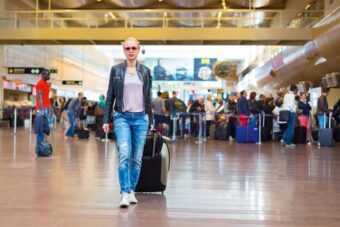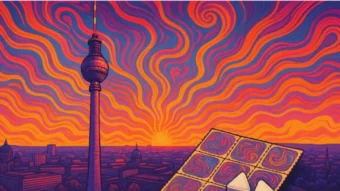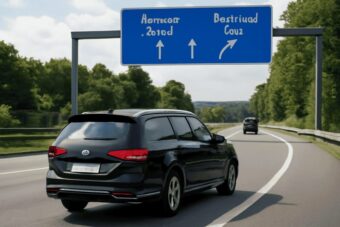Milad un-Nabi, also known as Mawlid al-Nabi, marks the birth of the Prophet Muhammad in 570 CE. In 2025 it falls on 6 September, and across Germany the event is both a spiritual occasion and a cultural showcase. Brought to Europe in the 19th century by Ottoman students and strengthened by Turkish and Bosnian migration in the 20th century, the tradition has become firmly rooted in German cities. Today, Milad un-Nabi unites more than 5.7 million Muslims in Germany, combining prayers, educational programmes and interfaith dialogue, reports G.business.
Muslim communities in Germany
Germany has the largest Muslim population in the EU, estimated at around 5.7 to 5.8 million people in 2025 (about 6.7% of the population). The majority are of Turkish origin, though strong communities from Syria, Bosnia, Afghanistan, Morocco and Iraq have shaped local traditions. Berlin, Cologne, Hamburg and Frankfurt are key centres of celebration. Districts such as Berlin-Neukölln, Cologne-Ehrenfeld, Duisburg-Marxloh and Frankfurt-Gallus have emerged as cultural hubs. In Hamburg, Muslim communities have played a significant role in public life for decades, making Milad un-Nabi a fixture on the city’s calendar.
Table: Muslim population in Germany (estimates 2025)
| State | Muslim Population 2025 | % of Local Population | Main Centres |
|---|---|---|---|
| North Rhine-Westphalia | ~1.65 million | 8.5% | Cologne, Duisburg |
| Bavaria | ~850,000 | 6.7% | Munich, Nuremberg |
| Baden-Württemberg | ~740,000 | 6.3% | Stuttgart, Mannheim |
| Berlin | ~320,000 | 8.2% | Neukölln, Wedding |
| Hesse | ~420,000 | 6.4% | Frankfurt, Wiesbaden |
| Hamburg | ~210,000 | 11.2% | St. Georg, Wilhelmsburg |
| Lower Saxony | ~360,000 | 4.5% | Hanover, Osnabrück |
| Rhineland-Palatinate | ~200,000 | 5.0% | Mainz, Ludwigshafen |
| Schleswig-Holstein | ~120,000 | 4.0% | Kiel, Lübeck |
| Other states combined | ~700,000 | 3–5% | Erfurt, Dresden, Bremen |
Traditions in Germany
In Berlin, the Sehitlik Mosque hosts sermons, Qur’an recitations and children’s programmes, often drawing hundreds of visitors. In Cologne, the Central Mosque organises lectures and nasheed choirs, highlighting both spiritual and cultural heritage. Frankfurt communities focus on educational events, offering talks and exhibitions on Islamic history. Hamburg’s Bosnian and Turkish communities hold evening gatherings where sweets like baklava are shared with neighbours. Many mosques invite local residents and school groups, underlining the importance of intercultural dialogue.
Quote:
“Mawlid is not only about remembering the Prophet’s birth, but also about showing Islam as a faith of compassion and peace in German society,” says Bekir Altaş, Secretary General of the Islamic Community Millî Görüş (IGMG).
Greetings and cultural expressions
Milad un-Nabi greetings in Germany often reflect the diversity of the community. Turkish phrases such as “Mevlid Kandili Mubarek Olsun” are widely used, alongside Arabic “Eid Milad un-Nabi Mubarak”. Younger Muslims increasingly share messages through WhatsApp, Instagram and TikTok, often with digital calligraphy or Qur’anic verses. Families gather at home for readings from the Prophet’s life and prepare food for friends and neighbours. In several cities, exhibitions of Islamic calligraphy and art are open to the public, allowing Germans of all backgrounds to take part.
Examples of greetings:
- “Eid Milad un-Nabi Mubarak — may peace and blessings be upon you.”
- “Mevlid Kandili Mubarek Olsun — may the Prophet guide us in compassion.”
- “Wishing your family joy and reflection on this blessed day.”
Ten ways to join celebrations in Germany
- Attend the Sehitlik Mosque in Berlin for public lectures.
- Take part in Cologne Central Mosque events with nasheed choirs.
- Visit Islamic calligraphy exhibitions in Frankfurt.
- Join charity dinners in Duisburg-Marxloh.
- Enjoy cultural evenings in Hamburg.
- Support Muslim charities with donations.
- Share greetings and quotes on social media.
- Read a biography of the Prophet Muhammad.
- Participate in interfaith dialogues hosted by mosques.
- Share traditional sweets with neighbours and friends.
Dos and Don’ts
Do:
- Offer respectful greetings such as “Eid Milad un-Nabi Mubarak.”
- Join mosque open events or exhibitions.
- Take part in charity projects or community meals.
- Dress appropriately when visiting religious venues.
- Use social media to spread messages of peace.
Don’t:
- Treat the day as a commercial holiday.
- Engage in political arguments during celebrations.
- Attend private ceremonies without invitation.
- Wear unsuitable clothing in mosques.
- Make dismissive comments about traditions or food.
Milad un-Nabi 2025 in Germany goes far beyond religious ritual; it mirrors the country’s diversity and its capacity for cultural dialogue. In Berlin’s mosques, Cologne’s grand halls, Frankfurt’s classrooms and Hamburg’s neighbourhoods, the Prophet’s birthday transforms faith into community and tradition into modern identity. At a time when integration and cohesion dominate public debate, Milad un-Nabi highlights values that Germany urgently needs: compassion, justice and unity. On 6 September 2025, millions of Muslims in Germany celebrate not only Muhammad’s birth but also their place in the heart of German society.
Stay connected for news that works — timely, factual, and free from opinion — and insights that matter now: What future awaits the Digital Euro: how Germany views Europe’s digital currency






